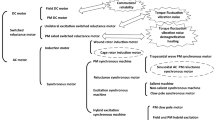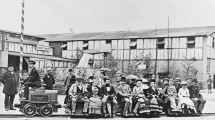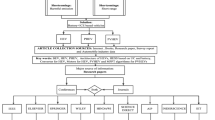Abstract
Wireless power transfer is an emerging technology due to its wide applications in wireless charging of electric vehicles, implanted medical devices, etc. To make wireless power transfer more efficient and user-friendly, the designer must know its implementation's extremes. One crucial part of the above need is the proper design of a high-frequency transformer in the wireless power transfer system. This high-frequency transformer uses the inductive power transfer principle to achieve minimum losses during power transfer. This paper presents the design of a high-frequency transformer intended for electrical vehicle charging. In this design, various configurations of transformer with different distances between primary and secondary coils have been analysed for wireless power transfer parameters such as coupling coefficient and mutual inductance. The designs have been simulated using ANSYS Maxwell software, and the results are presented. Finally, this work also compares circular and rectangular type transformer designs in terms of wireless power transfer.




















Similar content being viewed by others
References
Ahmad A, Alam MS, Chabaan R (2018) A comprehensive review of wireless charging technologies for electric vehicles. IEEE Trans Transp Electrif 4(1):38–63
Bosshard R (2015) Multi-objective optimization of inductive power transfer systems for EV charging. PhD diss. ETH Zurich, Diss. ETH No. 23176
Bosshard R, Kolar JW (2016) Inductive power transfer for electric vehicle charging: technical challenges and trade-offs. IEEE Power Electron Mag 3(3):22–30
Bosshard R, Kolar JW (2016) Inductive power transfer for electric vehicle charging: technical challenges and trade-offs. IEEE Power Electron Mag 3(3):22–30
Chinthavali M, Onar OC, Campbell SL, Tolbert LM (2015) Integrated charger with wireless charging and boost functions for PHEV and EV applications. Oak Ridge National Laboratory Contract with the US Department of Energy, No. DE-AC05–000R22725
Daniel Ongayo, Moin Hanif (2015a) An overview of single-sided and double-sided winding inductive coupling transformers for wireless electric vehicle charging. IEEE 2nd International Future Energy Electronics Conference (IFEEC)
Daniel Ongayo, Moin Hanif (2015b) Comparison of circular and rectangular coil transformer parameters for wireless power transfer based on finite element analysis. IEEE 13th Brazilian Power Electronics Conference and 1st Southern Power Electronics Conference (COBEP/SPEC)
Gati E, Kampitsis G, Manias S (2017) Variable frequency controller for inductive power transfer in dynamic conditions". IEEE Trans Power Electron 32(2):1684–1696
Hashemi Z, Zohrabi F, Mardaneh M (2019) A multi-objective optimization of switched reluctance motor using a hybrid analytic-ANFIS model considering the vibrations. Iran J Sci Technol - Trans Elect Eng 43(2):361–371
Houran MA, Yang X, Chen W (2021) Two-degree-of-freedom WPT system using cylindrical-joint structure for applications with movable parts. IEEE Trans Circuits Syst II: Express Briefs 68(1):366–370
Huang X, Gao Y, Zhou J, Ma J, Zhang J, Fang Y (2016) Magnetic field design for optimal wireless power transfer to multiple receivers". IET Power Electron 9(9):1885–1893
Joseph PK, Devaraj E, Gopal A (2019) Overview of wireless charging and vehicle-to-grid integration of electric vehicles using renewable energy for sustainable transportation". IET Power Electron 12(4):627–638
Kandasamy K, Vilathgamuwa DM, Madawala UK, Tseng K (2016) Inductively coupled modular battery system for electric vehicles. IET Power Electron 9(3):600–609
Khan-ngern W, Zenkner H (2014) Wireless power charging on electric vehicles. International Electrical Engineering Congress (IEECON), 2014. Chonburi, pp 1–4
Kim M, Joo D, Lee BK (2019) Design and control of inductive power transfer system for electric vehicles considering wide variation of output voltage and coupling coefficient. IEEE Trans Power Electron 34(2):1197–1208
Kline M, Izyumin I, Boser B, Sanders S (2011) Capacitive power transfer for contactless charging. IEEE Applied Power Electronics Conf. and Exposition (APEC). pp 1398–1404
Kumari A, Patra J, Pal N, Kumar N (2020) Impact of solar panel on the transformer performance: a case study. Iran J Sci Technol - Trans Elect Eng 44(3):1197–1206
Lee B, Kiani M, Ghovanloo M (2016) A triple-loop inductive power transmission system for biomedical applications. IEEE Trans Biomed Circuits Syst 10(1):138–148
Liu C, Hu AP, Nair NKC, Covic GA (2010) 2-D alignment analysis of capacitively coupled contactless power transfer systems. IEEE Energy Conversion Congress and Exposition (ECCE). pp 652–657
Liu C, Hu AP, Dai X (2011) A contactless power transfer system with capacitively coupled matrix pad. IEEE Energy Conversion Congress and Exposition (ECCE). pp 3488–3494
Liu X, Wang T, Yang X, Tang H (2018) Analysis of efficiency improvement in wireless power transfer system". IET Power Electron 11(2):302–309
Lu J, Zhu G, Lin D, Zhang Y, Wang H (2021) Realizing constant current and constant voltage outputs and input zero phase angle of wireless power transfer systems with minimum component counts. IEEE Trans Intell Transp Syst 22(1):600–610
Mi CC, Siqi L (2015) Wireless power transfer for electric vehicle applications. IEEE J Emerg Sel Topics Power Electron 3(1):4–17
Mi CC, Deng J, Nguyen TD, Li S, Li W (2015) A double-sided LCC compensation network and its tuning method for wireless power transfer. IEEE Trans Veh Technol 64(6):2261–2273
Mishra D, De S (2016) Effects of practical rechargeability constraints on perpetual RF harvesting sensor network operation". IEEE Access 4:750–765
Moghaddami M, Sundararajan A, Sarwat AI (2018) A power-frequency controller with resonance frequency tracking capability for inductive power transfer systems. IEEE Trans Ind Appl 54(2):1773–1783
Musavi F, Eberle W (2014) Overview of wireless power transfer technologies for electric vehicle battery charging. IET Power Electron 7:60–67
Onar OC, Campbell SL, Seiber LE, White CP, Chinthavali M (2016) A high-power wireless charging system development and integration for a toyota RAV4 electric vehicle. Oak Ridge National Laboratory Contract with the US Department of Energy No. DE-AC05–000R22725
Patil D, McDonough MK, Miller JM, Fahimi B, Balsara PT (2018) Wireless power transfer for vehicular applications: overview and challenges. IEEE Trans Transp Electrif 4(1):3–37
Prasad Jayathurathnage A (2017) Review on wireless power transfer technology. IEEE Asia Pacific Microwave Conference (APMC), 2017
Raj U, Shankar R (2020) Deregulated automatic generation control using novel opposition-based interactive search algorithm cascade controller including distributed generation and electric vehicle. Iran J Sci Technol - Trans Elect Eng 44(3):1233–1251
Rasekh N, Mirsalim M (2018) Evaluation study on an integration method for a DDQP using LCC and series compensation topologies for inductive power transfer. IET Electr Power Appl 12(9):1320–1327
Tian X, Chau KT, Liu W, Lee CHT (2021) Selective wireless power transfer using magnetic field editing. IEEE Trans Power Electron 36(3):2710–2719
Trung NK, Minh TT (2020) Wireless charging system for electric bicycle application. Int J Power Electron Drive Syst 11(4):1926–1935
Wang X, Xu J, Ma H, Zhang Y (2020) A reconstructed S-LCC topology with dual-type outputs for inductive power transfer systems. IEEE Trans Power Electron 35(12):12606–12611
Yang S, Deng X, Lu J, Wu Z, Du K (2020) light-load efficiency optimization for an LCC-parallel compensated inductive power transfer battery charger. Electron (Switz) 9(12):1–13
Yi Z, Li M, Muneer B, Zhu Q (2019) High-efficiency mid-range inductive power transfer employing alternative-winding coils". IEEE Trans Power Electron 34(7):6706–6721
Zeng Y, Qiu D, Meng X, Zhang B, Tang SC (2018) Optimised design of coils for wireless power transfer in implanted medical devices. IEEE J Electromagn, RF Microwav Med Biol 2(4):277–285
Zhong W, Hui SYR (2017) Charging time control of wireless power transfer systems without using mutual coupling information and wireless communication system". IEEE Trans Industr Electron 64(1):228–235
Zhu J, Xu M, Sun J, Wang C (2010) Novel capacitor-isolated power converter. IEEE Energy Conversion Congress and Exposition (ECCE). pp 1824–1829
Acknowledgements
The authors wish to acknowledge SASTRA Deemed University, Thanjavur, India, to extend infrastructural support to carry out this work.
Author information
Authors and Affiliations
Corresponding author
Rights and permissions
About this article
Cite this article
Kathirvelu, K.P., Sandeep, G.G.V., Swathi, J. et al. Design of Transformer for Wireless Power Transfer in Electric Vehicles. Iran J Sci Technol Trans Electr Eng 45, 1311–1324 (2021). https://doi.org/10.1007/s40998-021-00441-w
Received:
Accepted:
Published:
Issue Date:
DOI: https://doi.org/10.1007/s40998-021-00441-w




